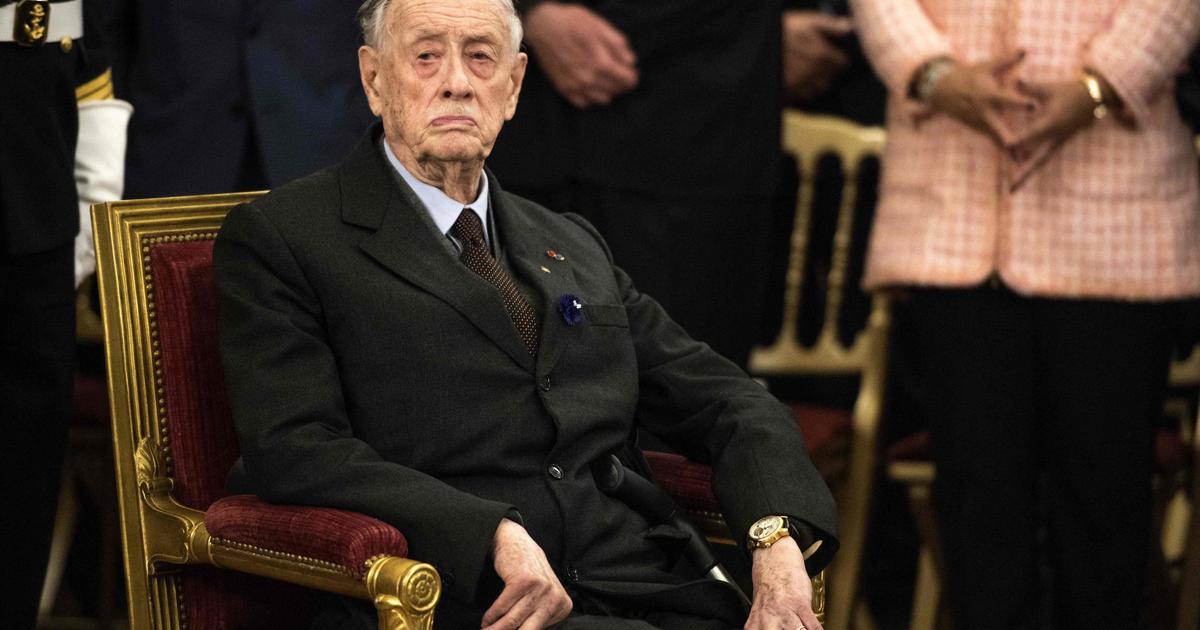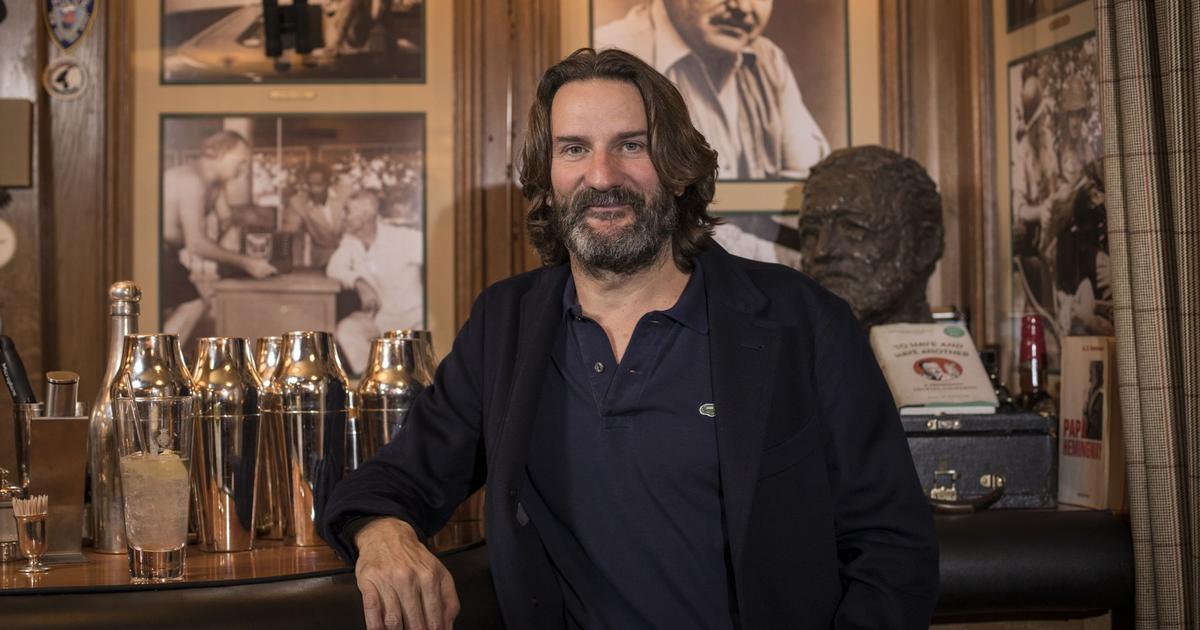Icon: enlarge
Günter de Bruyn 1989 in the Berlin Church of the Redeemer: Sensitive and in need of protection
Photo: epd / imago images
When I think of Günter de Bruyn, I first hear a calm, fine, even delicate voice, and a word that is no longer in the vocabulary of many, if they can do anything with the word vocabulary at all.
It's the word self-doubt.
When I think of Günter de Bruyn, I think of a person whose finger is carefully gliding over a manuscript as if he wanted to touch the words he wrote down again, to give them one last little push that moves them from his world of thought into the World of what has been said and heard and thus no longer conveyed that can be retrieved from it.
In 1981 Günter de Bruyn sat next to Christa Wolf in an East Berlin hotel and felt his way forward with his finger through what he had written himself, which quickly went from the unheard to the unheard.
He called for the right to do community service in the GDR and warned against the suppression of the Christian peace movement.
If you look at the pictures of de Bruyn's speech at that German-German writers' meeting today, the word "appearance" does not come to mind.
It seems as if the many commas in his sentences are small, deliberately erected hurdles against which someone can test his own thoughts.
Only the thought that overcomes a barrier or two deserves to be spoken.
This way of dealing with words is like that of a good doctor with the person who is entrusted to him.
more on the subject
90th birthday of Günter de Bruyn: Silent Post by Stefan Berg
Award-winning writer: Günter de Bruyn is dead
Günter de Bruyn, whom I got to know as a result of the speech he gave in 1981, said he found it difficult to speak and write.
In retrospect, what was due to himself and what was due to the circumstances under which he formulated can no longer be separated from one another.
Caution, he wrote in one of his later texts, has become "second nature" to him.
Icon: enlarge
Günter de Bruyn 2007: His sentences had to take a long journey
Photo: Patrick Pleul / dpa
He applied this caution to each of his words, sometimes his sentences seem so complicated, as if he had wanted to create his own unprecedented tense for his thoughts.
Subjunctive three?
Future four?
This delicacy and caution distinguished him in dealing with words and people alike.
One of his early stories is about a returning German soldier and his adventurous attempts to find food, shelter and love.
The word "war wounded" applied to him in two ways
This first self-disclosure arose from his own experience, the word
war-
injured applied to him in two ways, because soul and body were sore from the experience, so sore that years later he dreamed of being locked up and told me, who was decades younger than me, about it Was forced into a uniform in 1982.
The letters he wrote to me then were full of sympathy, yes, love.
And since they were formulated in a shorter time than his stories, I received sentences that didn't have to grope their way out of cover.
I got the benefit of clear text: stay the way you are.
Or: This military aspect is so terrible.
They were sentences of his first nature.
While reading some of his literary texts, I later asked myself how Günter de Bruyn would have formulated his stories or novels without his second nature, caution.
An exciting thought experiment.
A writer does not usually live by hiding, but by opening, exposing.
But he had already chosen a place of residence that was like a hiding place, barely reachable in Märkisch.
I was allowed to enter here twice, feel very comfortable for hours, enjoy the occupant's leisure, his timeless, thoughtful silence and his cautious way of giving information.
A masterful guide
On the way back I thought how vulnerable this sensitive person was and what long journey his sentences have to make, out of this hiding place in public, which he himself avoided.
A really long march.
Günter de Bruyn began his "Interim Balance Sheet", one of his strongest books, written in 1992, with the admission that he had been writing about his life long enough.
"The professional liar practices telling the truth."
He was a man of catharsis, not hubris, his self-doubts were by no means played.
Years later, when I presented Günter de Bruyn his letter to me, he was amazed that he was capable of such openness.
That wasn't an act.
He seemed surprised how well his first nature had endured.
When I think of Günter de Bruyn, I have this beautiful face, criss-crossed by lines, which is as diverse as a landscape.
When I think of Günter de Bruyn, I think of the unexcited beauty of Brandenburg, of Theodor Fontane's irony, of calm and something never-ending.
A long road that we will now go on without this masterful guide.
One of the last sentences from him that reached me was: He was an old man who saw the future, which he would never see again, bleak.
Icon: The mirror







/cloudfront-eu-central-1.images.arcpublishing.com/prisa/ECMXEZFXU5ELZBWNRP6K4RXA44.jpg)
